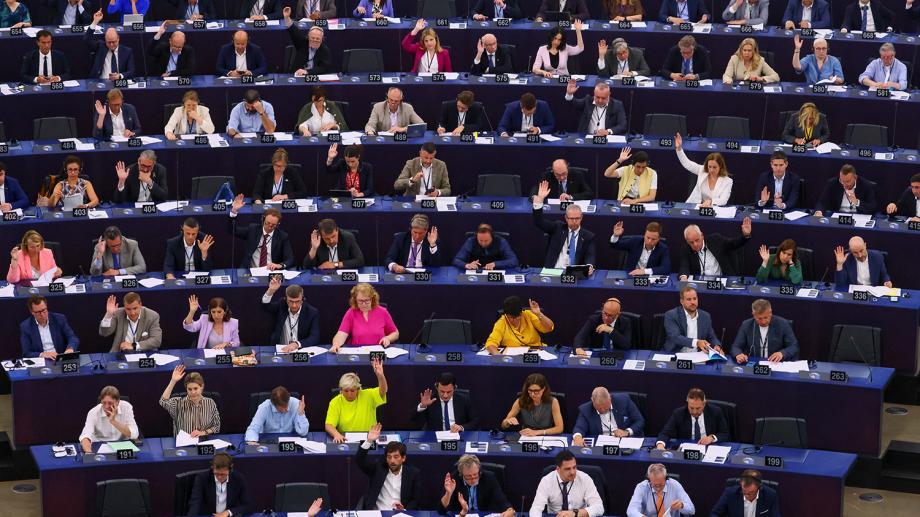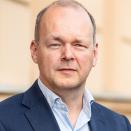風蕭蕭_Frank
以文會友歐洲的投票,歐洲的未來
https://ip-quarterly.com/en/europes-vote-europes-future
6 月份的歐洲議會選舉將是迄今為止最重要的選舉。
Henning Hoff 2024 年 3 月 22 日
hoff@dgap.org
Henning Hoff 是《INTERNATIONALE POLITIK QUARTERLY》的執行主編。
2023 年 6 月 13 日,歐洲議會成員在法國斯塔斯堡的歐洲議會全體會議上投票。
如果您必須向選民解釋投票為何重要,這也許不是一個好兆頭。就歐洲議會而言,長期以來,人們一直認為它無關緊要,投票率低,而且傾向於將選舉用於抗議投票,這表明兩者之間存在基本的脫節。
現在情況不再如此。正如歐盟選舉網站所說,議會在斯特拉斯堡和布魯塞爾兩地辦公,“通過的法律影響著每個人:大國和小社區、強大的公司和年輕的創業公司、全球和地方”。即將於 6 月 6 日至 9 日舉行的選舉將是迄今為止最重要的選舉,對於確定歐盟的未來方向具有重要意義。
民意調查預測將向右轉。民族主義民粹主義者、新右翼和極右翼聚集在歐洲保守黨和改革黨 (ECR) 和身份與民主 (ID) 團體中,其中包括瑪麗娜·勒龐的法國國民聯盟 (RN) 和德國選擇黨 (AfD),他們將獲益。
不幸的是,中間派政黨的反應是加大反移民言論的力度,而這總是傾向於幫助極端分子。但仍有時間扭轉局勢,包括在德國,並抑製那些假裝複雜問題有簡單答案的人的虛假誘惑。因此,考慮到利害關係,至少有希望選民這次會三思而後行。正如戴夫·基廷在我們的封麵部分指出的那樣,“抗議投票給極右翼可能會讓選民在 6 月份感覺良好。但一年後可能不會那麽好。”
中右翼歐洲人民黨 (EPP) 是歐盟委員會主席烏爾蘇拉·馮德萊恩的政治家園,該黨未來可能麵臨棘手的決定,拉法爾·博鬆和尼古拉·馮·翁達爾紮認為。然而,中間派很有可能在歐洲守住。與此同時,沙欣·瓦萊 (Shahin Vallée) 主張利用競選活動進行更誠實和前瞻性的辯論,討論歐盟未來的金融架構。他認為,如果不做出改變,歐洲將走向財政懸崖。
下一屆歐洲議會是歐盟未來拚圖中的一塊;其成員國如何互動以打造共同的未來是另一個問題。目前法德因烏克蘭戰略而爭吵不休,將誰領導歐洲以及如何領導歐洲的問題推到了風口浪尖。Jana Puglierin 和 Jacob Ross 從相反的角度來探討這個問題,分別關注巴黎和柏林。John Kampfner 指出,在組織歐洲未來安全方麵,目前存在“英國大小的漏洞”。
正如歐盟創始人之一讓·莫內 (Jean Monnet) 所預測的那樣,認為“歐洲將在危機中成長”是陳詞濫調。不管這是否是陳詞濫調,危機確實已經到來。現在,選民和政策製定者必須挺身而出。
Europe's Vote, Europe's Future
https://ip-quarterly.com/en/europes-vote-europes-future
The European Parliament elections in June will be the most consequential yet.

Not anymore. As the European Union’s election website says, the parliament, which divides its time between Strasbourg and Brussels, “adopts laws that affect everyone: large countries and small communities, powerful companies and young start-ups, the global and the local.” The upcoming elections on June 6 to 9 will be the most consequential yet—and of great importance when it comes to setting the European Union’s future course.
Polls predict a rightward shift. The nationalist populists, the New Right and far right assembled in the European Conservatives and Reformer (ECR) and the Identity & Democracy (ID) groups—which include Marine Le Pen’s France’s Rassemblement National (RN) and Germany’s Alternative für Deutschland (AfD)—are in for gains.
Unfortunately, centrist parties are reacting by ramping up anti-immigration rhetoric, which always tends to help the extremists. But there is still time to turn the tide, including in Germany, and to dampen the false lure of those who pretend that there are simply answers to complex problems. So there is at least some hope that voters may think twice this time, given what’s at stake. As Dave Keating points out in our cover section, a “protest vote for the far right may make voters feel good in June. But it may not feel so good in a year’s time.”
The center-right European People’s Party (EPP), the grouping of which is the political home of European Commission President Ursula von der Leyen, may face tricky decisions in the future, argue Raphal Bossong and Nicolai von Ondarza. Yet, there’s a good chance that the center will hold in Europe. Shahin Vallée, meanwhile, makes the case for using the election campaign for a more honest and forward-looking debate about the EU’s future financial architecture. Without changes, Europe is headed for a fiscal cliff, he argues.
The next European Parliament is one piece in the puzzle of the EU’s future; the way its member states interact to forge a common future is another. The current Franco-German falling-out over Ukraine strategy is putting the question of who leads Europe and how center stage. Jana Puglierin and Jacob Ross approach it from the opposite sides, focusing on Paris and Berlin respectively. And John Kampfner points to the current “UK-size hole” when it comes to organizing Europe’s future security.
It's a cliché to argue, as one of the EU’s founders, Jean Monnet, predicted, that “Europe will be forged in crisis.” Cliché or not, the crisis has certainly arrived. Now voters—and policymakers—must rise to the occasion.
Henning Hoff is Executive Editor of INTERNATIONALE POLITIK QUARTERLY.





